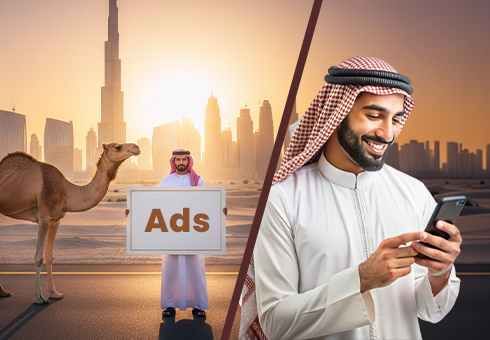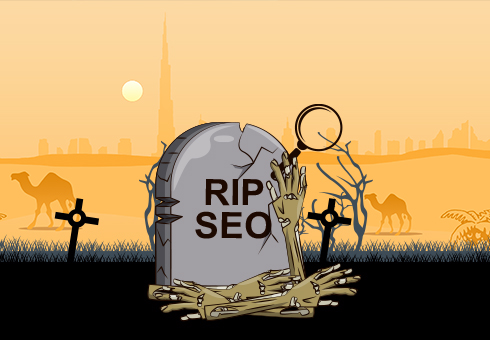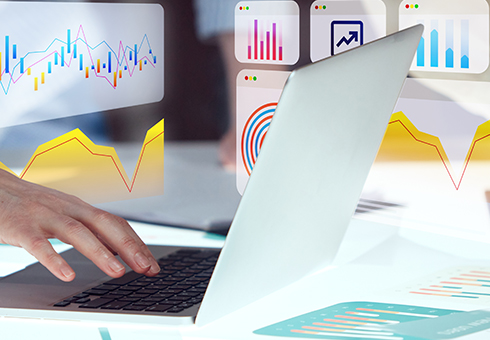
What is Digital Marketing - From SEO To Social Media In One Guide
Table of Contents
Ah!!! The good old marketing days, where there were giant billboards on highways with sexy models drinking Pepsi or those jingles that you hummed for weeks without even realising you were doing it.
Fast forward today, you searched on Google for the best walking shoes under 2000 bucks. You read the reviews and then went to Instagram for scrolling, but bam, the first thing that came to your feed was exactly what you are looking for.
That, my friend where marketing has reached in the present day. Marketing, or should I say Digital marketing, has now reached the places where you are spending most time and talking to you in a tone that not only seems personal but also helpful and condescending.
Whether it’s Google, YouTube, Instagram, or even email, brands are everywhere fighting for the attention of their potential customers.
What gives them the edge?
The digital strategies are measurable, targeted, and often way more cost-effective.
In this blog, we will break down what digital marketing is with examples, dive into understanding its different types, and peek into some real-life example of digital marketing. We will answer the FAQs we have been asked most about digital marketing.
So let’s dive in!
What Is Digital Marketing?
By definition, digital marketing is the art of promoting products and services using technology and digital or online platforms such as Google, YouTube, and so on. You can think of it as a Gen Z generation of traditional marketing, which is more tech savvy, embraces AI, and knows exactly how to be a center of attraction.
Digital marketing has revolutionised the way brands are doing business. Now every penny counts, and every marketing step has accountability attached to it. Brands are now:
- Targeting customers on Google right when they’re searching.
- Show up on their Instagram feed between their favourite videos.
- Sending emails reminding customers about the shoes they left in the cart
So, if you compare Digital marketing with Traditional, while traditional marketing is like throwing a net in the ocean and hoping for a good catch, digital marketing is like setting the trap with your customer’s favourite bait and being confident that you will have a good catch
Why Digital Marketing Is Important Today?
Did you know that there are almost 5 billion active internet users in the world? From researching the best restaurants nearby to binge-shopping during sales, everything and everyone is online all the time.
That’s why digital marketing is not optional anymore—it’s survival. Businesses, big and small, are using it because of its multiple benefits:
Global Reach - Thanks to Digital Marketing, a small cafe in Kasaul is attracting tourists from London.
Budget-friendly - You can now launch an ad campaign for as low as 100 bucks.
Measurable Results - Unlike a one-way ad that you don’t have any way to track, you can actually understand exactly how many people watched your ad, how they felt about it, and exactly what clicked.
Hyper-personalisation - You can actually create ads targeting a single person, too. From hyper-personalised messaging to detailed filters, digital marketing has the power to get you heard by all those who might be interested.
Not only this, brands are literally:
- Getting discovered on Google via Ads and SEO.
- Selling directly via Instagram shops and WhatsApp.
- Building loyal and engaging communities around their brand.
So here is the truth - digital marketing has leveled the playing field, treating big and small businesses at the same level. Now, add measurable strategies to it and you have got yourself a money minting, customer-generating force.
Types Of Digital Marketing With Example
Search Engine Optimization (SEO)
This is what you need to do if you have ever dreamt of having your website at the top of the Google search. SEO is all about optimizing your content so that the search engines consider your content to be the most useful for the queries that lie in your subject matter expertise.
Example - You are a shop selling imitation jewellery, and you are writing a blog on “How should you choose the color of your jewellery according to your outfit?” This is something your potential customer would want to know, and if optimised properly with rich content, it might come up at the top of the search.
Also Read: The End Of Backlinks In 2025
That’s the power of SEO. It can help increase the organic (read free) traffic to your website and direct people who are interested in buying similar products you are offering.
Search Engine Marketing (SEM) / Pay Per Click (PPC)
This is the faster version of SEO, but it is paid in nature. In SEM, you pay Google to show your content or your website at the top of a particular search. This is further being refined by Google in the form of Pay Per Click, which means you only pay if someone clicks your website and stays on your page.
Example - Let’s assume you are a company that has recently launched in a new market and you are selling mobile phones under 20000. So you run a Google ad campaign for the search query - “mobile phones under 20000” and people will see your landing page before the actual search results.
Social Media Marketing (SMM)
From memes on Twitter to reels on Instagram to long-form videos on YouTube, social media is an awesome platform for brand awareness and yes to have a truckload of customers organically.
A single viral post followed by proper nurturing can help you gain a lot of customers in a very short time.
Example - You are a small business owner who makes scented candles. You record the process of candle-making and post it with soothing trending music, and it goes viral. As a result, you have received 100 orders from a single reel and a few queries for candle candle-making workshop.
That is the power of Social Media Marketing. Be consistent, and it will soon start to show result.
Email Marketing
This one is not going anywhere. Emails are like your brand’s direct hotline that helps you to extend personalised offers, newsletters and cart reminders to nudge your potential customers towards becoming a loyal customer.
Example - Amazon sending you discounts on your cart products to nudge you to make a purchase.
Content Marketing
Content was, is and will always be a king!
Be it blogs, videos, podcasts or captions - content is required at every step and it helps you build trust. The more informative and useful your content is, the better business your brand can do.
Also Read: Hidden Content Strategy Revealed - Make Your Brand Impossible To Ignore
Example - Hubspot’s content policy that is primarily focused on information sharing. Everyday it attracts millions of readers that turns into paying customers.
Affiliate Marketing
- The conceptof affiliate marketing is simple.
- Someone suggests your product via a link or code
- Your potential customer trust that someone so they buy your product
- You pay that someone for every sale you are getting through them.
Example - Amazon storefronts put up by influencers to help you find the best deals and best products.
Influencer Marketing
Influencer marketing is the digital version of word-of-mouth marketing.
What is an influencer?
An influencer is someone who a bunch of people (could be 100 or 100000) trust. They recommend a product they really like, talk about it at length and nudge people towards buying that products. Sometimes they also fashion special discount codes for their followers. They do all of that in return of a specific fee that is decided between the brand and the influencer.
Also Read: Influencer Marketing Trends in Dubai You Can’t Afford To Miss
Example - A mommy influencer promoting a phonics course on Instagram.
Mobile Marketing
A recent report indicates that approximately 5.78 billion people worldwide use a mobile phone, which equates to 70.5% of the global population as of early 2025.
We practically live on our phones. SMS, app-based ads, and push notifications all fall here.
Example: Zomato’s quirky push notification at 11 PM—“What diet? Order biryani now.”
FAQs about Digital Marketing
Is digital marketing only for big brands?
A BIG NO! In fact, small businesses often see the quickest ROI because of niche targeting and agility.
How long does it take to see results?
SEO may take 3–6 months. Social media ads or Google ads can show results instantly. It all depends on budget and strategy.
What tools do digital marketers use?
- Analytics: Google Analytics
- SEO: SEMrush, Ahrefs
- Email: Mailchimp
- CRM & automation: HubSpot
These tools make the job smarter and easier.
What are the most in-demand digital marketing skills?
SEO, PPC, social media strategy, content creation, and analytics. Basically, knowing how to attract, convert, and retain customers online.
Digital Marketing Isn’t Just An Option—It’s Essential
Whether it’s SEO, social media, email, or influencer collabs, every type plays a role in connecting brands with their potential customers. The beauty of digital marketing is that it is effective for every business - big or small. Whether you’re Nike or the neighborhood bakery, all you need is the right strategy, creativity, and consistency.
So, if you’ve been wondering, “Do I really need digital marketing?” the answer is simple: Yes. Because if you’re not online, you don’t exist.


